The seminar aims to increase the wide consultation of agencies, organizations, businesses, and experts, while contributing to equipping knowledge and raising social awareness about personal data protection, ensuring information security, network security, and privacy in the digital age. This is also an activity contributing to the completion of the draft Law before submitting it to the National Assembly for consideration and approval at the 9th Session next May.
In his opening speech, Lieutenant General Nguyen Minh Chinh, Director of the Department of Cyber Security and High-Tech Crime Prevention and Control, Ministry of Public Security, Permanent Vice President of the National Cyber Security Association, said that in the context of information technology increasingly spreading into people's lives, users are providing more and more personal information and data to cyberspace and to service providers.
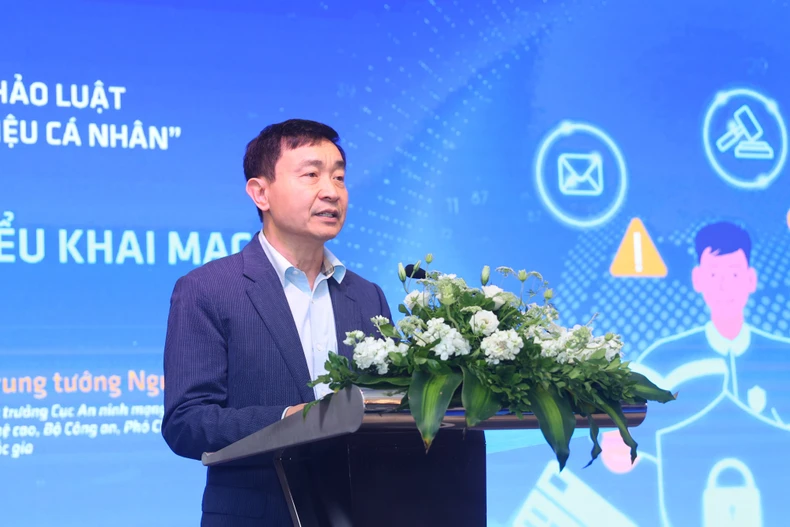 |
Lieutenant General Nguyen Minh Chinh, Director of the Department of Cyber Security and High-Tech Crime Prevention and Control, Ministry of Public Security, Permanent Vice President of the National Cyber Security Association. |
"The popularity of personal data in cyberspace is directly proportional to the consequences that occur when personal data is not properly and adequately protected," said Lieutenant General Nguyen Minh Chinh.
Meanwhile, awareness of personal data protection is still limited; much biometric information, personal history, relationships, health status, and finances are posted publicly, becoming data sources for automatic information collection programs. The situation of personal information being leaked, stolen, and traded on cyberspace also occurs frequently.
Many new services on cyberspace have emerged, with activities of collecting, exploiting, and analyzing information and personal data, but without a mechanism to manage user data, posing many issues related to national security, social order and safety, and infringing upon the legitimate rights and interests of organizations and individuals.
These challenges pose an urgent need to develop and perfect the Law on Personal Data Protection to institutionalize the provisions of the Constitution and laws on the right to protect personal privacy, human rights, civil rights, and cyber security; ensure harmony with international practices and regulations on personal data protection; create a legal foundation for business activities related to personal data; limit and gradually overcome the situation of personal data being bought, sold, leaked, and lost widely; and help raise awareness and consciousness about personal data protection.
"The draft Law on Personal Data Protection was developed by the Ministry of Public Security in a very open-minded spirit, carefully studying international experience; widely soliciting comments from domestic and foreign agencies, organizations and individuals; conducting surveys of a number of agencies and enterprises in important fields with large-scale personal data processing activities; organizing an international workshop to learn from experience in building personal data protection policies with the participation of more than 700 domestic and international agencies, organizations and individuals," Lieutenant General Nguyen Minh Chinh added.
At the seminar, Major Dao Duc Trieu - representative of the Drafting Committee, Editorial Board, Deputy Secretary General, Head of the Research, Policy and Legal Consulting Board of the National Cyber Security Association presented the key contents of the draft Law on Personal Data Protection, including: scope of regulation, principles of personal data processing, rights and obligations of subjects, responsibility for data protection, mechanism for handling violations and ensuring privacy in the digital environment.
 |
Major Dao Duc Trieu, Deputy Secretary General of the National Cyber Security Association, Head of the Association's Research, Policy and Legal Advisory Board. |
The presentation also clarifies the direction of law-making in the spirit of continuing Decree No. 13/2023/ND-CP, but at a higher, synchronous and fundamental level.
Delegates also listened to in-depth presentations from representatives of organizations and enterprises, in which the Institute of Policy Management and Development Strategy made recommendations on improving the law on personal data protection from the perspective of international research and comparison; a representative of the Military Industry-Telecoms Group (Viettel) shared difficulties and proposed policy support for telecommunications enterprises in the process of implementing the Law; Vietnam Data Security Joint Stock Company (VNDS) presented practical experience in complying with personal data protection requirements at technology enterprises.
The open discussion received many quality questions revolving around important issues: definition and classification of personal data, sensitive data protection mechanism, data transfer abroad, data protection credit rating, enforcement capacity of small and medium-sized enterprises, and the supervisory role of state agencies after the law comes into effect...
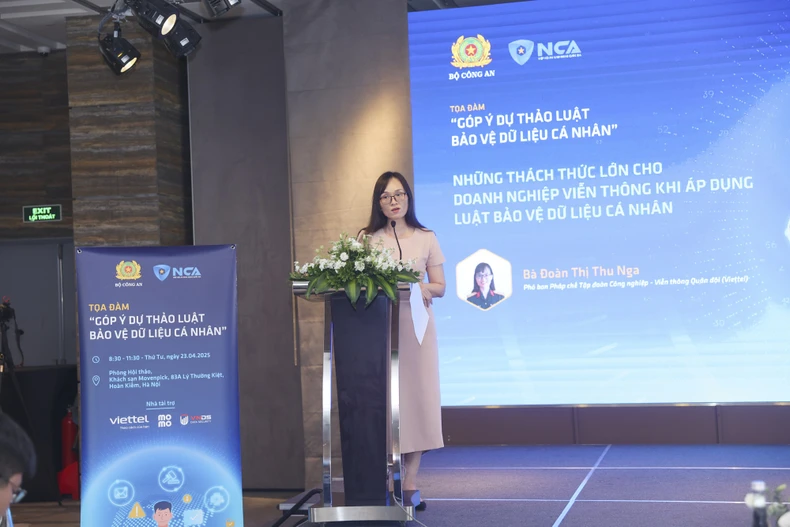 |
Ms. Doan Thi Thu Nga, Deputy Head of Legal Department, Military Industry-Telecoms Group (Viettel) shared at the seminar. |
Delegates agreed that personal data is closely linked to human rights and civil rights, and has a profound impact on cybersecurity, national security, and the entire digital ecosystem. Meanwhile, the current legal system on data protection is fragmented and lacks consistency.
According to statistics, there are currently 69 legal documents referring to personal data, but Decree 13/2023/ND-CP is the first document to provide a relatively complete definition and principles of data protection. In the context of Vietnam entering a period of accelerating digital transformation, the development of a specialized law on personal data protection is urgent.
The draft Law on Personal Data Protection consists of 7 chapters and 69 articles, fully regulating the following contents: principles of data processing, rights and obligations of data subjects and related parties, data transfer abroad, data impact assessment, data protection credit rating, handling of violations and inspection and supervision mechanisms. The law also regulates foreign organizations and individuals that collect and process data of Vietnamese citizens.
Source: https://nhandan.vn/bao-dam-an-toan-thong-tin-an-ninh-mang-va-quyen-rieng-tu-trong-ky-nguyen-so-post874567.html


![[Photo] Russian military power on display at parade celebrating 80 years of victory over fascism](https://vphoto.vietnam.vn/thumb/1200x675/vietnam/resource/IMAGE/2025/5/9/ce054c3a71b74b1da3be310973aebcfd)
![[Photo] Ho Chi Minh City: Many people release flower lanterns to celebrate Buddha's Birthday](https://vphoto.vietnam.vn/thumb/1200x675/vietnam/resource/IMAGE/2025/5/10/5d57dc648c0f46ffa3b22a3e6e3eac3e)
![[Photo] General Secretary To Lam meets with Chairman of the Federation Council, Parliament of the Russian Federation](https://vphoto.vietnam.vn/thumb/1200x675/vietnam/resource/IMAGE/2025/5/10/2c37f1980bdc48c4a04ca24b5f544b33)
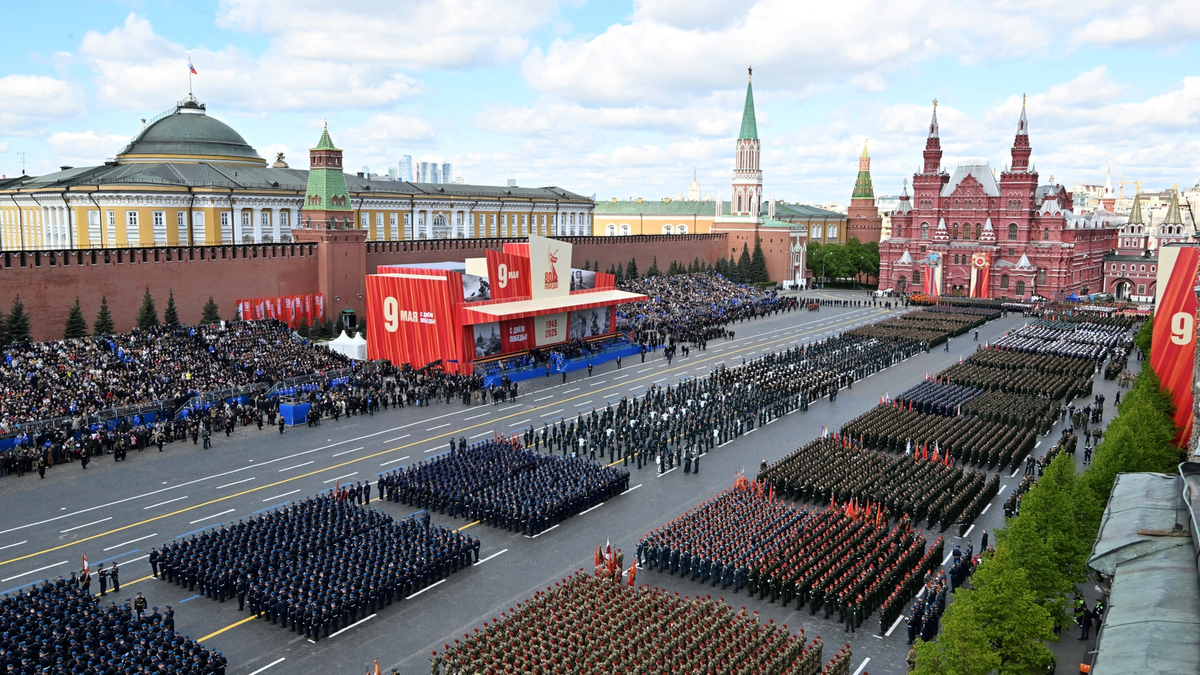
![[Video] 24-hour news on May 9, 2025: General Secretary To Lam officially visits the Russian Federation and attends the 80th anniversary of Victory Day in the Great Patriotic War](https://vphoto.vietnam.vn/thumb/1200x675/vietnam/resource/IMAGE/2025/5/10/5eaa6504a96747708f2cb7b1a7471fb9)
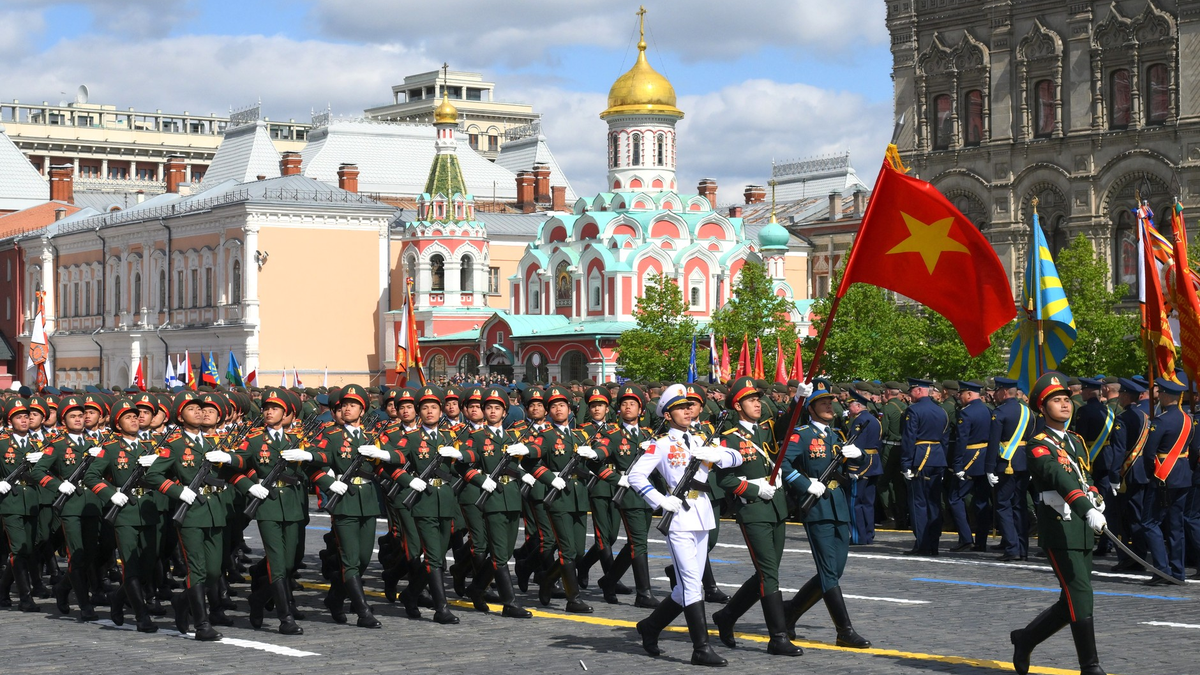
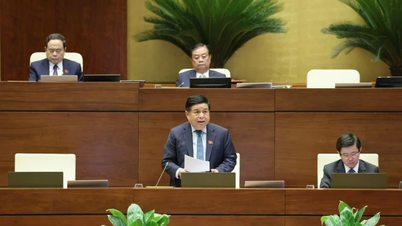

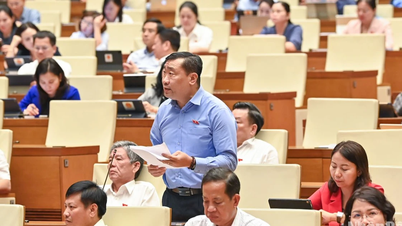







![[Photo] Ho Chi Minh City: Many people release flower lanterns to celebrate Buddha's Birthday](https://vphoto.vietnam.vn/thumb/402x226/vietnam/resource/IMAGE/2025/5/10/5d57dc648c0f46ffa3b22a3e6e3eac3e)
![[Photo] General Secretary To Lam meets with Chairman of the Federation Council, Parliament of the Russian Federation](https://vphoto.vietnam.vn/thumb/402x226/vietnam/resource/IMAGE/2025/5/10/2c37f1980bdc48c4a04ca24b5f544b33)


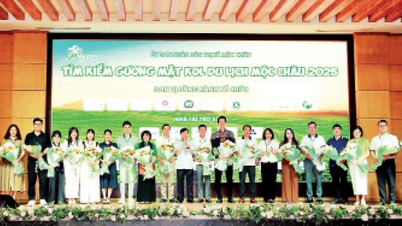

![[Photo] General Secretary To Lam and international leaders attend the parade celebrating the 80th anniversary of the victory over fascism in Russia](https://vphoto.vietnam.vn/thumb/1200x675/vietnam/resource/IMAGE/2025/5/9/4ec77ed7629a45c79d6e8aa952f20dd3)



























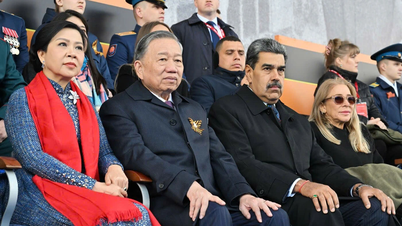








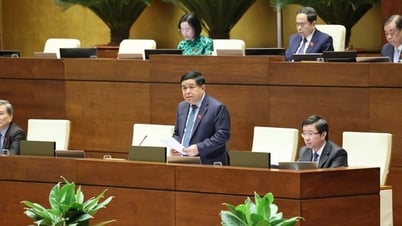

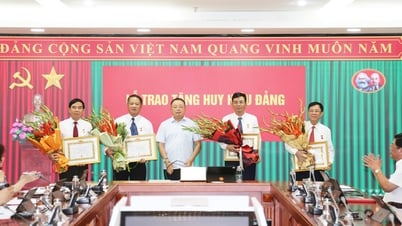

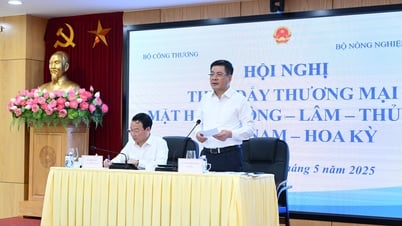


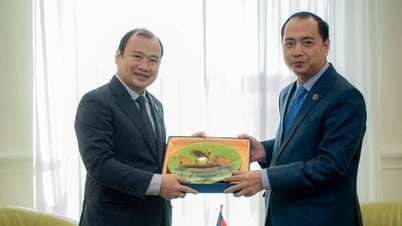


















Comment (0)